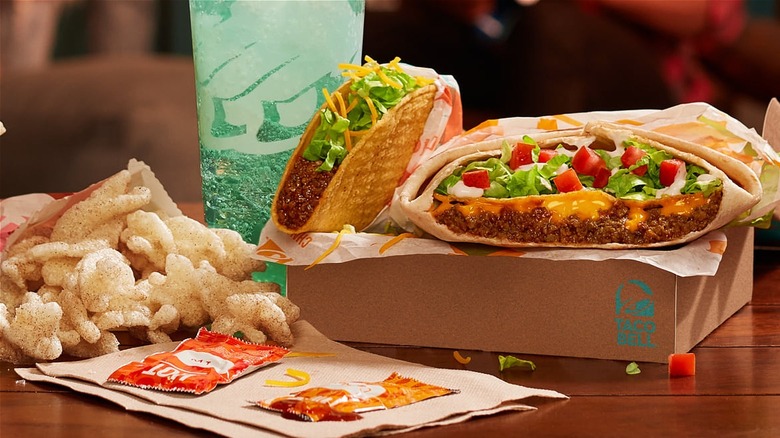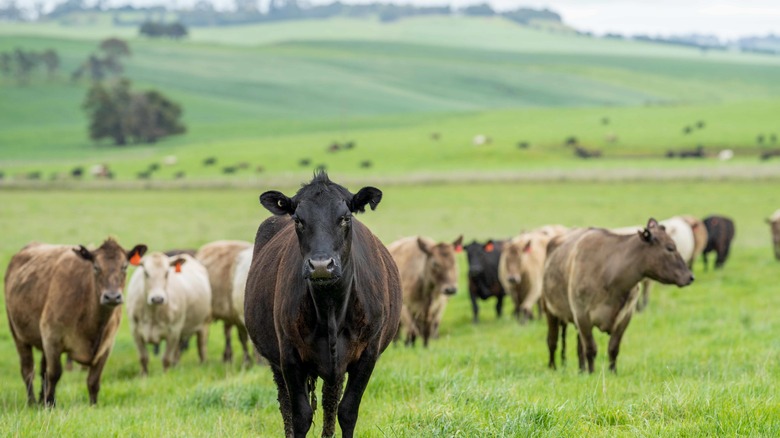Taco Bell's Sustainability Efforts, Explained
Just after Earth Day and in time for Cinco de Mayo celebrations, Taco Bell has announced some new efforts at increasing its sustainability. Taco Bell's parent company, Yum! Foods, has been working to decrease its carbon footprint on various levels. The company is a real heavy hitter in the quick-service category: home to KFC and Pizza Hut in addition to the ubiquitous Mexican-American chain, Yum! has a declared commitment to knock back its carbon emissions 50% by 2030. Up to now, much of these efforts have focused on packaging, including a program at Taco Bell that recycles condiment packets.
Now, Taco Bell is turning its gaze to its company's supply chain. A company that sells 290 million pounds of beef a year can have a major environmental impact, and the chain's new initiative is a collaboration with its food supplier Cargill and the National Fish and Wildlife Foundation (NFWF) to promote regenerative cattle farming practices and habitat preservation. The company is giving $2 million and utilizing another $2 million of federal funds for a total of $4 million in grants that will help ranchers develop methods that conserve threatened habitats, preserve water quality, and reduce greenhouse gases over the next four years.
Bettering the land where the cattle roam
The company sees this as part of a two-pronged effort to create delicious, affordable food and improve the environment at the same time.
Taco Bell's latest initiative revolves around regenerative farming and should help protect thousands of acres of land and its wildlife. The project aims to reduce carbon emissions by 44,000 metric tons by 2030, which falls in line with Yum's stated sustainability goals. Regenerative farming, a term popularized in 2014 by the Rodale Institute, refers to "working with nature to utilize photosynthesis and healthy soil microbiology to draw down greenhouse gases." The grasslands that most cattle graze on are home to a number of endangered species, including both mammals and birds which depend on the local ecosystem for their survival. Colorado, Idaho, Montana, Nevada, Oregon, Utah, and Wyoming are all part of the critical region affected by farming expansion and Taco Bell's new program.
The grants will provide farmers with both practical and monetary assistance so that their approach to cattle grazing and farming can be more sustainable. From May 4 to August 3, Taco Bell will be taking applications from groups that can work with Cargill and the NFWF to help ranchers develop new practices dedicated to a more holistic approach to improving the earth, while still being able to supply quality beef to businesses.

